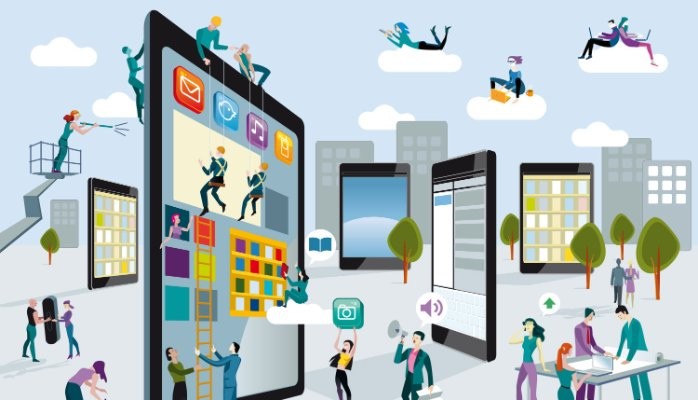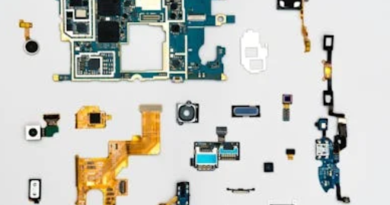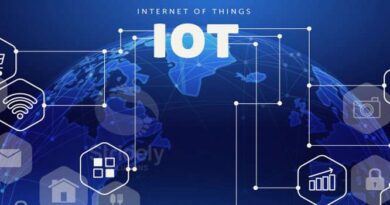How Has Technology Changed Our Lives?
Technology has profoundly reshaped every aspect of human life, touching how we work, communicate, learn, and even entertain ourselves. From the rise of the internet to advancements in artificial intelligence, the integration of technology has been a defining feature of modern society. Its influence continues to grow, offering both immense benefits and complex challenges. This article explores how technology has changed our lives in various domains, highlighting the transformative power it wields.
Communication
One of the most noticeable changes brought by technology is the way we communicate. Gone are the days when letters took weeks to deliver. Today, people can connect instantly through emails, text messages, and video calls. Social media platforms like Facebook, Twitter, and Instagram have created global communities, allowing individuals to share ideas, stories, and experiences in real-time.
Moreover, tools such as Zoom and Microsoft Teams have revolutionized professional and personal communication. These platforms became particularly indispensable during the COVID-19 pandemic, enabling remote collaboration and virtual family reunions. While these technologies foster connectivity, they also raise concerns about reduced face-to-face interaction and the potential for misinformation.
Work and Productivity
The workplace has undergone a seismic shift due to technological advancements. Automation and artificial intelligence (AI) have streamlined processes, improving efficiency and reducing human error. Tasks that once took hours can now be completed in minutes with the help of software solutions and machines.
Remote work, once a niche option, has become mainstream, largely due to cloud computing and communication tools. Platforms like Slack, Trello, and Google Workspace allow teams to collaborate seamlessly from different parts of the world. While these changes have made work more flexible, they also blur the lines between professional and personal life, contributing to burnout in some cases.
Education
Technology has transformed education, making it more accessible and engaging. Online learning platforms like Coursera, Khan Academy, and Duolingo offer courses on virtually any subject, often for free. Students and professionals can now upskill or reskill at their own pace without needing to attend traditional classrooms.
Interactive tools like smartboards, educational apps, and virtual reality (VR) have enriched learning experiences, making complex topics easier to understand. During the pandemic, technology became the backbone of education, as schools and universities adopted virtual classrooms to ensure continuity in learning. However, this shift also highlighted the digital divide, with underprivileged communities facing challenges in accessing devices and reliable internet.
Healthcare
In healthcare, technology has been a game-changer, improving patient outcomes and streamlining medical processes. Telemedicine allows patients to consult doctors from the comfort of their homes, while wearable devices like Fitbit and Apple Watch help monitor health metrics in real time.
Medical advancements such as robotic surgeries, 3D-printed prosthetics, and AI-powered diagnostic tools have made treatments more precise and personalized. Electronic health records (EHRs) ensure that patient information is easily accessible, reducing administrative burdens. However, concerns about data privacy and the high cost of some technologies remain critical issues.
Entertainment
The entertainment industry has been revolutionized by technology. Streaming services like Netflix, Spotify, and YouTube have made on-demand content a norm, giving users the freedom to choose what, when, and where to watch or listen. Video game graphics have become hyper-realistic, and virtual reality offers immersive experiences that were once unimaginable.
Social media platforms have also blurred the lines between creators and consumers, allowing anyone to produce and share content. While these advancements democratize entertainment, they also contribute to shorter attention spans and overconsumption, raising questions about their long-term impact on mental health.
Transportation
Technology has significantly improved transportation, making it faster, safer, and more efficient. GPS navigation systems and apps like Google Maps have made getting lost a thing of the past. Ride-sharing services like Uber and Lyft have transformed urban mobility, providing convenient alternatives to traditional taxis.
Electric vehicles (EVs) and autonomous driving technology promise a greener and safer future. High-speed trains and advances in aviation technology have shrunk distances, enabling people to travel across continents in hours. However, these advancements come with environmental concerns and challenges in regulating emerging technologies like self-driving cars.
Social and Environmental Impact
On a broader scale, technology has influenced societal norms and environmental practices. Social movements gain momentum through online platforms, as hashtags and viral content raise awareness about critical issues. At the same time, the overuse of technology has led to concerns about screen addiction, cyberbullying, and data breaches.
From an environmental perspective, technology offers both solutions and challenges. Renewable energy technologies, such as solar panels and wind turbines, contribute to sustainable development. Smart home devices help reduce energy consumption by optimizing resource usage. On the flip side, electronic waste and the energy demands of data centers pose significant environmental risks.
Challenges and Ethical Considerations
While the benefits of technology are undeniable, its rapid advancement also brings challenges. Job displacement due to automation is a pressing concern, as machines replace roles traditionally performed by humans. Cybersecurity threats, including hacking and identity theft, have become more sophisticated, requiring robust countermeasures.
Ethical dilemmas also arise with technologies like AI and genetic engineering. Questions about data ownership, algorithmic bias, and the ethical implications of altering human DNA remain largely unresolved. As technology continues to evolve, society must address these issues to ensure equitable and responsible usage.
The Future of Technology
Looking ahead, emerging technologies like quantum computing, blockchain, and biotechnology promise to revolutionize our lives even further. Smart cities equipped with IoT devices aim to enhance urban living, while space exploration projects like Mars colonization expand the boundaries of human ambition.
However, the future of technology also depends on how we manage its integration into our lives. Striking a balance between innovation and ethical considerations will be crucial in ensuring that technology serves as a force for good.
Conclusion
Technology has undeniably changed our lives, offering unprecedented opportunities and posing significant challenges. From communication and healthcare to entertainment and transportation, its influence is pervasive and transformative. While it has brought immense benefits, it also requires thoughtful management to address issues like inequality, ethical dilemmas, and environmental impact.
As we navigate an increasingly tech-driven world, the key lies in harnessing technology’s potential while mitigating its risks. By fostering innovation, inclusivity, and sustainability, we can ensure that technology continues to enrich human life without compromising future generations.




